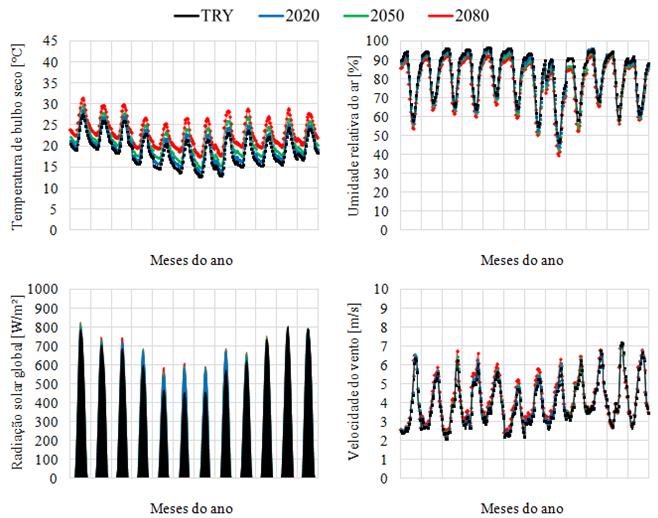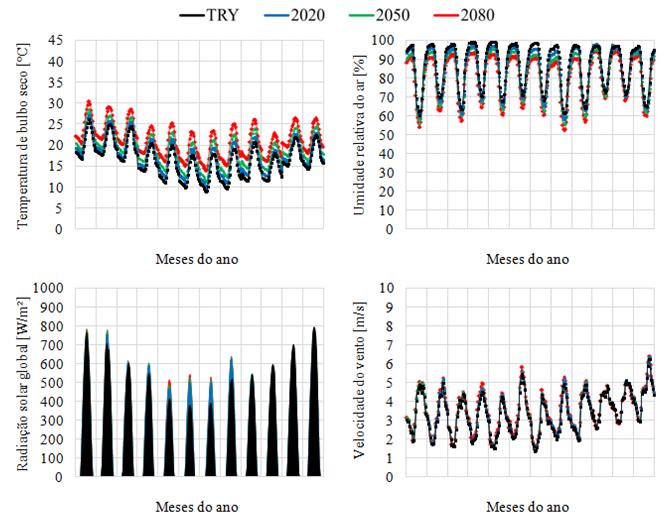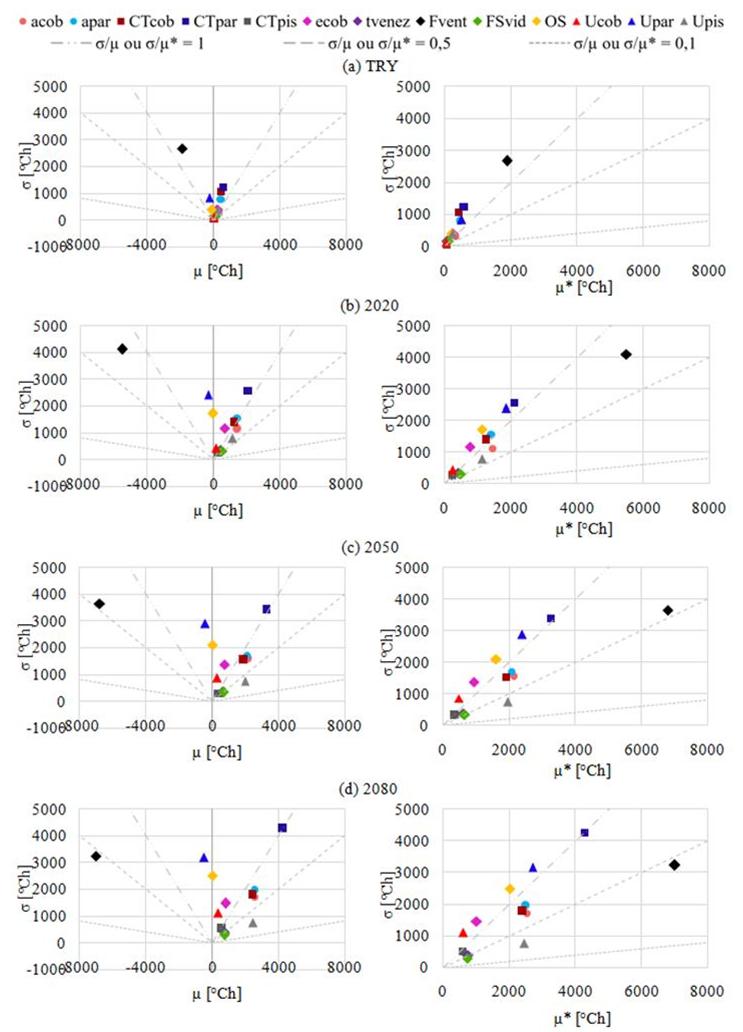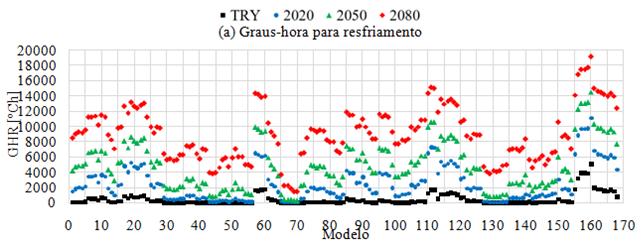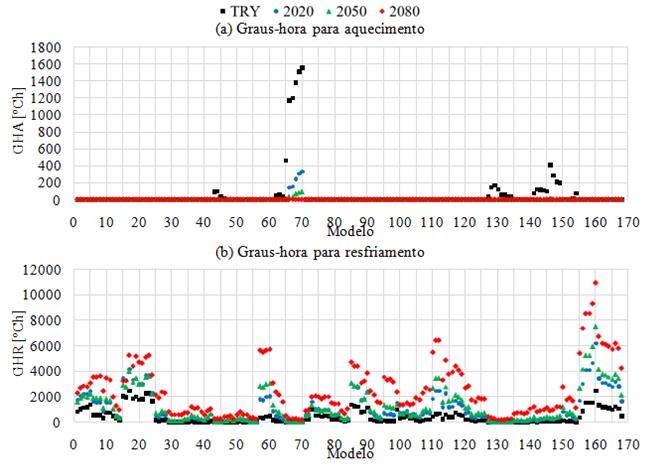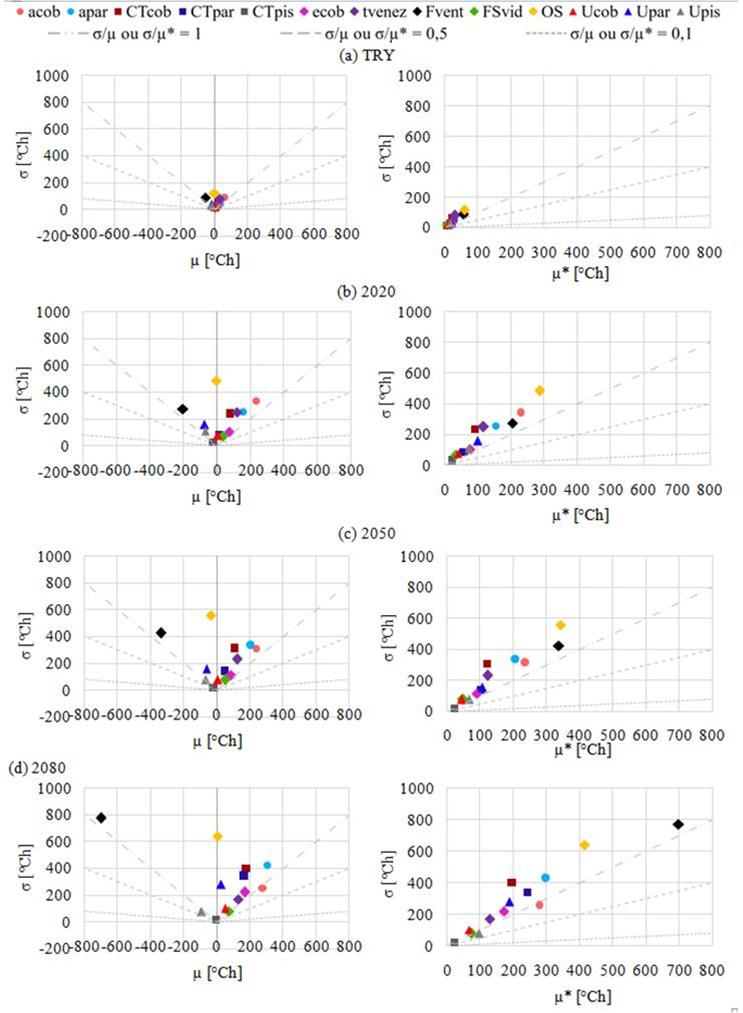Abstract
This paper aims to determine global sensitivity indices of design variables in the thermal performance of low-income housing in Belém, Brasília, São Paulo, and Curitiba, in view of the effects of climate change. For this purpose, the thermal performance of a bedroom was simulated in different environmental conditions, from progressions of weather files obtained through the CCWorldWeatherGen tool, for the periods of the years 2020 (2011 to 2040), 2050 (2041 to 2070) and 2080 (2071 to 2100), according to the A2 emissions scenario of the Intergovernmental Panel on Climate Change. The Morris indices showed that climate change impacts not only the thermal performance of the built environment, but also the importance of design variables, especially in cities in milder climates. In Belém, the ventilation factor was most important; in Brasília, the thermal transmittance of the walls and the ventilation factor stood out; and in São Paulo and Curitiba, the solar absorptance of the roof, solar orientation, and the ventilation factor stood out. Due to decisive variations in the sensitivity indices over the years, this study concluded that the building designs must necessarily consider projections of climate change to ensure performance resilience of the built environment.
Keywords:
Building simulation; Global warming; Morris method; Thermal performance of buildings

 Thumbnail
Thumbnail
 Thumbnail
Thumbnail
 Thumbnail
Thumbnail
 Thumbnail
Thumbnail
 Thumbnail
Thumbnail
 Thumbnail
Thumbnail
 Thumbnail
Thumbnail
 Thumbnail
Thumbnail
 Thumbnail
Thumbnail
 Thumbnail
Thumbnail
 Thumbnail
Thumbnail
 Thumbnail
Thumbnail
 Thumbnail
Thumbnail
 Thumbnail
Thumbnail
 Thumbnail
Thumbnail
 Thumbnail
Thumbnail
 Thumbnail
Thumbnail
 Thumbnail
Thumbnail
 Thumbnail
Thumbnail
 Thumbnail
Thumbnail
 Thumbnail
Thumbnail
 Thumbnail
Thumbnail
 Thumbnail
Thumbnail
 Thumbnail
Thumbnail

 Fonte: adaptado de IPCC (
Fonte: adaptado de IPCC ( Fonte: adaptado de CB3E (
Fonte: adaptado de CB3E ( Fonte: adaptado de CB3E (
Fonte: adaptado de CB3E ( Fonte: adaptado de ASHRAE (AMERICAN...,
Fonte: adaptado de ASHRAE (AMERICAN..., 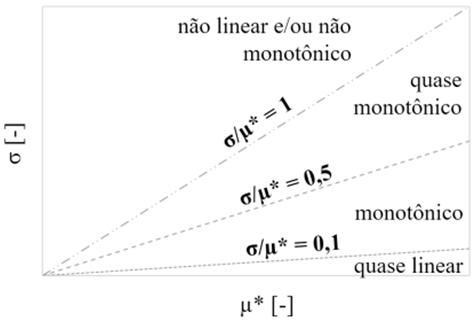


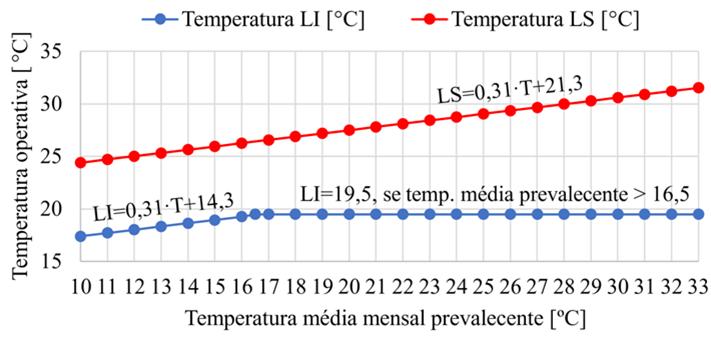 Fonte: adaptado de ABNT/CB-55 (
Fonte: adaptado de ABNT/CB-55 (

